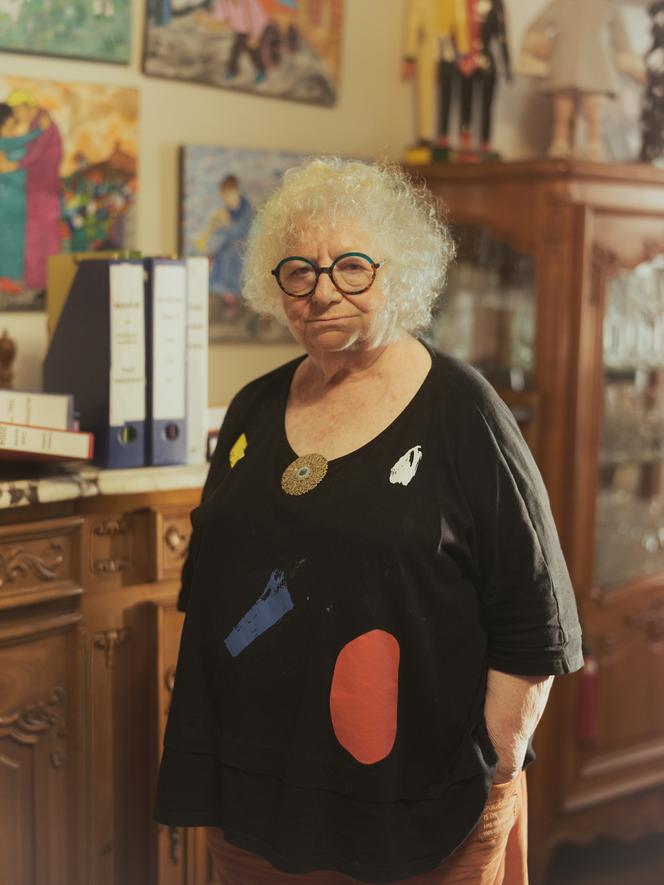


In Ida Apeloig's apartment in Paris's Sentier district, every wall, piece of furniture and object bears the imprint of the background of Apeloig, née Rozenberg. A pre-war Jewish upbringing resounding with the Yiddish accent of her Polish origins. On this Thursday in June, her response to current events fluctuated between anger and fear. Châteaumeillant (Cher, central), the village to which she has given her heart and dedicated herself, the one where she was hidden for five years during the war, voted over 51% for far-right parties in the European elections. "Where has Châteaumeillant's spirit of welcome and humanitarian solidarity gone? Today, politics has become chaos: the far right is at its peak and the Nouveau Front Populaire includes La France Insoumise, which only talks about Gaza," she said.
Born in Paris in 1937, Apeloig grew up surrounded by the furniture fashioned by her father, Schmil, who had arrived from Poland a few years earlier with his young wife, Golda. Hailing from the fourth generation of a family of carpenters, the young man fled a Poland where anti-Semitism had claimed too many victims, settling in Paris like the families of writer Georges Perec, far-left activist Pierre Goldman and lawyer Georges Kiejman.
The Rozenbergs lived in poverty in the back of the workshop on Rue du Faubourg-Saint-Antoine. "I've kept my father's furniture, which is very important to me. The smell of the walnut stain he used reminds me of my childhood, and I use it for my paintings," said Ida, who since her marriage in 1952 has used the last name of her husband, Marcel Apeloig. "We met at the stand of the YASC, a Jewish communist sports club, at the Fête de L'Huma in 1952," said Marcel.
Amid the objects arranged in her father's inlaid display case, a bronze medal sat on a box. "It's my honorary citizen's medal from Châteaumeillant. I'm very proud of it, it's my hometown," said Apeloig, before going on to explain the ties that have bound her to this small town of 1,700 inhabitants located south of Bourges, in central France.
"In 1939, at the start of the war, we left Paris for this village, which welcomed the first Jewish refugees. I found the lists that had been drawn up by the prefecture: in total, 144 Jews lived there during the war. Only four were arrested and deported − all the others were saved by a formidable network of solidarity and courage on the part of the villagers," said the 86-year-old woman. In front of her, she spread out the documents that she'd collected, researched and filed in a dozen or so folders during the 20 years that she's devoted to thanking this village and telling this story.
You have 49.85% of this article left to read. The rest is for subscribers only.
